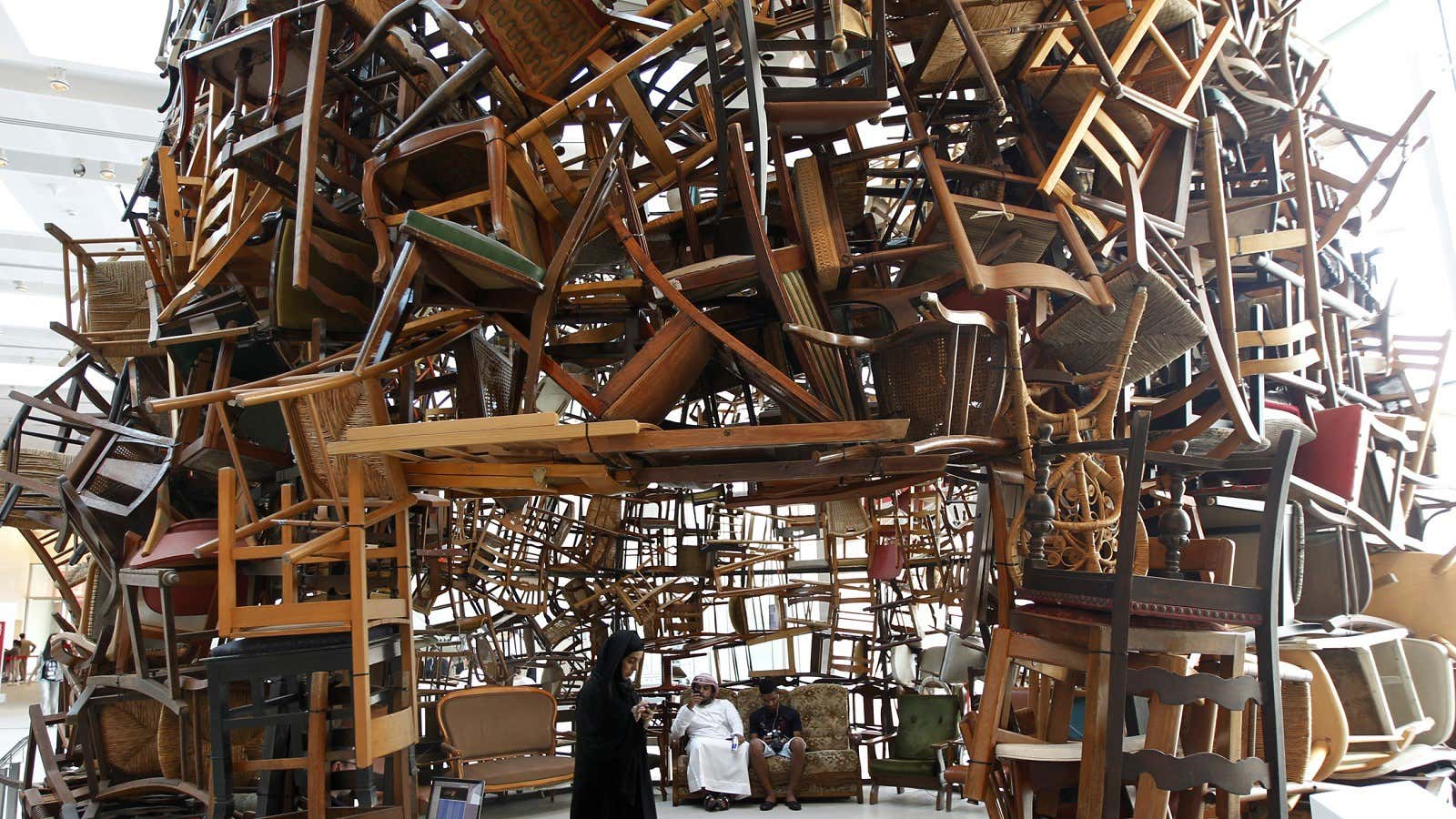The way Indians buy furniture seems to be changing.
Until a few years ago, most would either call their local carpenter or head to the nearest furniture market. Now, increasing numbers are going online—and furniture is expected to become one of the largest category in the rapidly growing Indian e-commerce market in India.
By 2018, India’s online marketplace is expected to grow to $14.5 billion (Rs88,921 crore) and online furniture retail’s share is likely to go up. ‘This increase will be primarily on account of growing acceptance of home grown apparel brands of online shopping portals and openness towards buying home decor and furniture online,’ research firm RNCOS said.
For long, furniture retail in India has mostly been unorganized. As much as 80% of the industry, according to various estimates, is run by standalone stores and individual carpenters. Besides a few organized players like Evok, Home Stop and HomeTown, there are no brands in the organized brick and mortar furniture retail space that have managed to build a large chain of stores. (Sweden’s IKEA could be a game changer, when it opens its first store in India, possibly in Hyderabad.)
Instead, a clutch of online furniture sellers have emerged in the last few years, offering a potential new business model for an industry that is bound to grow as India’s middle-class widens and spending rises.
The market is led by Pepperfry, Urban Ladder and Fab Furnish, three online furniture retailers founded in 2012. Part of their success is offering two things that traditional furniture typically don’t: A wide variety of modern designs, and the convenience of delivery and assembling.
“There is a gap in availability and desirability in the furniture industry in India. Customers want modern designs, but the traditional stores do not offer that variety,” said Ankur Bisen of Technopak, a management consulting firm. There is a lack of retail destinations for furniture, Bisen added, which has helped online companies in the sector do well.
Another reason is the cost of retail space. “There is very little space for organized brick and mortar retail to happen in the furniture industry in India. Rentals are crazy and retailers need to generate Rs 4-5 crore ($652,103-$815,129) a month to be able to sustain the kind of space that a brick and mortar retailer needs,” Vikram Chopra, co-founder of Fab Furnish, said.
The online players have caught the attention of venture capitalists. Urban Ladder raised $20 million (Rs 122.6 crore) earlier this year, in addition to a $6 million funding it had secured in an earlier round. Pepperfry has raised about $29 million (Rs 177.8 crore) so far.
Bisen pegs the furniture retail industry at $13 billion (Rs 79,683.5 crore), with online contributing less than $100 million (Rs 613.2 crore). But the estimate differs, since a large part of the industry is unorganized. Chopra estimates that it’s a $20 billion (Rs 122,590 crore) market in India overall. His startup alone is looking to touch about $65 million (Rs 398.6 crore) in turnover this year. Pepperfry had set itself that target last year.
The organized furniture retail industry is growing at the rate of 20% year-on-year, according to Pulin Shah, president of the Association of Furniture Manufacturers and Traders. Shah, for one, isn’t particularly bothered about online retailers in the long-term. That’s partly because online stores besides selling some of their own designs provide another outlet for these manufacturers to sell.
“Earlier traditional retailers believed that a customer has to touch and feel the product before buying and therefore need big space. But they have learnt now that this is not the case,” Shah said. “Pepperfry has a larger turnover than probably any other furniture retailer in Mumbai. Traditional retailers are seeing that and they now know that the online medium is here to stay.”
Shah believes that other organized players are going to get online, too. “If these players can figure out the logistics aspect, each one will open their own online store. Brick and mortar stores will feel the heat for a while now, until they all get online,” he explained.
Sellers are looking to get smaller retail spaces and are looking to either tie-up with existing players or set up their own stores. Future Group has tied up with Pepperfry to sell some of their products through the site. Home Stop has its own online store. Pepperfry being a marketplace has also given other furniture retailers an opportunity to sell online.
Finally, there’s also the fact that much of the growth will come from India’s smaller cities. Fab Furnish, for example, makes 30% of its sales to customers in Tier 2 and Tier 3 cities. “India has too many towns and cities,” Chopra said. “It’s not possible for a brick and mortar chain to open an outlet in every one of these places.”
